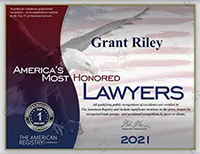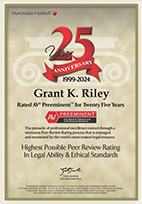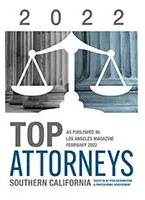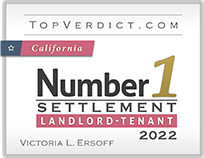
Tenant Rights Attorney in San Francisco
Fighting For Tenant Rights in California
If you’re wondering where you can find a tenant rights attorney in San Francisco, you’re not alone. Slum housing is a widespread issue in California. Manipulative and dishonest landlords often take advantage of people, especially those living in lower-income areas. Some landlords neglect their legal responsibilities to provide safe and decent housing for which their tenants are paying.
If you are one of the many people struggling with a negligent or unavailable landlord, you need a tenant rights attorney who will fight to protect your rights. Our team at Riley Ersoff is ready to stand by your side as you pursue justice.
To schedule a free consultation with a tenant rights attorney in San Francisco, call (888) 658-9695 today.
What Is Slum Housing?
“Slum housing” is generally defined as a run-down dwelling that is not fit to live in. It can also refer to an entire area, usually urban, that is overcrowded, generally unsafe, and in poor condition. The law lists conditions that would label a building unfit and substandard. The most common issues are usually vermin infestations, moisture and water intrusion, cleanliness, and structural hazards.
Some examples that constitute a sanitation problem include:
- Lack of proper shower or sink
- Dampness
- Lack of hot and cold running water
- Lack of adequate heating
- Lacking proper ventilation
- Insect or vermin infestation
- Lack of required electrical lighting
- Visible mold growth
- Lack of effective weather-proofing
- Lead hazards
- Lack of fire or carbon monoxide detectors
- Lack of sewage system connection
- Lack of adequate garbage disposal
Structural hazards include:
- Inadequate foundations
- Defective flooring
- Deteriorating walls
- Sagging ceilings
Other issues include conditions such as unsafe wiring, improper plumbing, accumulated debris, or any other inadequately maintained building item.
What Landlord & Tenant Laws Should I Know?
There are so many sources of information for tenants in California that it can be overwhelming. You can reference California Tenants—A Guide to Residential Tenants’ and Landlords’ Rights and Responsibilities, a booklet provided by the California Department of Consumer Affairs, for more detailed information. You can also call an experienced California landlord-tenant attorney to help you find answers to questions about your legal rights as they pertain to your particular situation.
Landlord Responsibilities
California law requires landlords to provide habitable rental units that are structurally sound, sanitary, and safe. They must adhere to state and municipal health and safety codes, perform necessary repairs to maintain habitability and disclose any known lead hazards. Landlords are not responsible for damage caused by tenants.
Tenant Rights
Tenants have the right to inspect the premises before renting and to request repairs that the landlord is legally obligated to do. Tenants must reasonably maintain their units and common areas in clean and undamaged conditions, and they must repair any damage they caused by neglect or abuse.
If the defects are severe enough to affect someone’s health and safety, and landlords do not make repairs they are legally obligated to do in a timely fashion, tenants have several options:
- Repair and deduct: If repairs do not cost more than one month’s rent, the tenant may do the repairs themselves and deduct the cost from their monthly rent
- Abandonment: The tenant can move out of the rental unit
- Rent withholding: They are not paying some or all of the rent if there are defects in the dwelling
Each of these options carries risks. The defects must be severe enough to cause a risk to health and safety.
The tenant must give the landlord notice and a reasonable opportunity to cure the defect. If not, the landlord can sue the tenant for unpaid rent or attempt to evict the tenant. If you are considering any of these options, it is important that you first speak to an experienced Bay Area tenant attorney at Riley Ersoff.

Our Satisfied Clients
-
“I am very happy and would recommend this firm to anyone. They had great representation and I really really appreciate the help they gave us. Thank you Grant Riley!”- William Family
-
“Grant Riley and Victoria Ersoff are excellent lawyers and they will fight with all they have for you and your family. Angela, their Office Manager is also the nicest woman you’ll meet.”- Annie L.
-
“Grant and staff were in our corner....He got us $ALOT OF MONEY$!!...Even after it was all done and over, Grant "Personally" checked in on us and made sure that we got a new place to live, and we were in good shape.”- Former Client
















